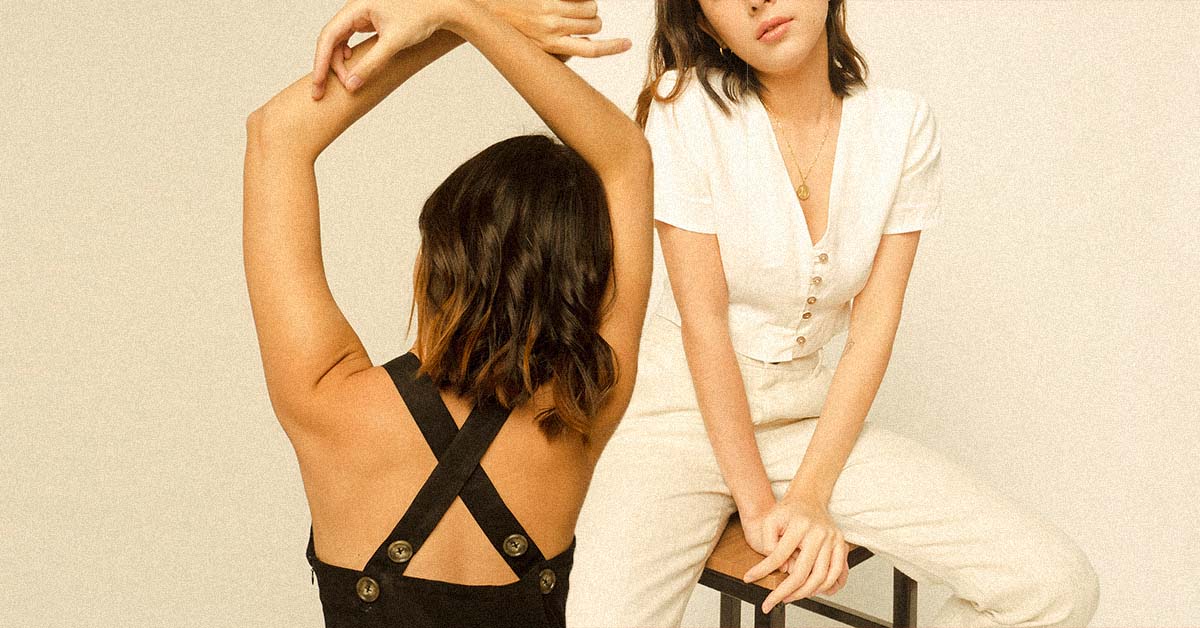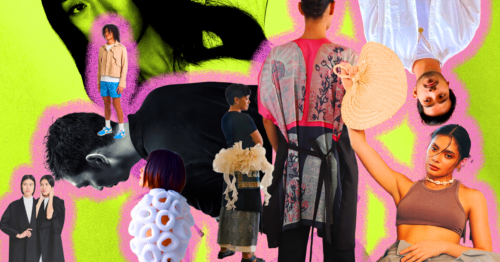Here’s a worthwhile lifestyle swap to consider in 2019 (one that’s been a long time coming)
Relevance and appeal in fashion remain to be measured by newness, freshness and nowness. Three things that the industry has milked in order to offer trends that now ceremoniously change in a matter of days. While a nod to inclusivity, meeting this widespread demand for cheap, on-trend clothing comes with grave consequences, something that fast fashion manufacturers, the culprits responsible, keep mum about.
“Fashion is supposed to feel frivolous,” reminded Leandra Medine in Man Repeller’s “The Chatroom,” in defense of fashion and what it stands for at its very core, at least. “It’s supposed to be this decadent release from reality.” The price this comes with, however, is not lost on her. Aware of the alarming turnover of goods in the industry, Medina likened fashion to perishables at a grocery store, aptly pointing out the downside to the thrill of the sale and the rush of retail therapy. “There’s this sort of wave in fashion where clothing is starting to feel a little bit like fresh produce,” she said. “As though you get it and if you don’t eat it, it goes rotten.”
RELATED: A Tribute to Outfit Repeaters (Who Are Actually Doing Fashion Right)
With resources being depleted faster than they are replenished, fashion has become one of today’s most destructive industries. Glamorous, but equally harmful. According to the Copenhagen Fashion Summit, if fast fashion norms remain unchallenged, garment production by the year 2030 will increase by 63 percent. This all the while considers that a billion articles of clothing are produced every year as is. What’s more, Green Peace reported: “In 2015 alone, the fashion industry consumed nearly 80 billion cubic meters of freshwater, emitted over a million tonnes of CO2 and produced 92 million tonnes of waste.”
This is the calling of labels like Kotn, Cuyana, Reformation and, this side of the globe, Studio 17. Run by sustainable fashion advocates, these brands operate to challenge the status quo and empower people to shop slow instead.
For the founders of local brand Studio 17, the advocacy may mean coming face to face with international fast fashion retailers, but their niche and reason for being more than serve as the payoff. “It’s important to look at issues that call for more informed and transparent production processes. There are unfair labor practices, increased carbon footprint, health dangers and pollution to think about, to start,” shares Alleli Balboa, who founded Studio 17 with her sisters, Allyssa and Aira. “If small-scale businesses such as ours didn’t exist to provide alternative means that are more mindful, ethically sound and conscious about the environment, then we’ll all just keep giving big corporations power to control the industry and disregard the consequences.”
While many other brands have come before and have followed suit, the Balboa sisters understand that “sustainable fashion” has somewhat been reduced to a buzzword, to which fashion personality Bryanboy quipped at one point: “I’m gonna jump off a bridge head first if I hear about yet another ‘sustainable’ clothing line. There’s nothing sustainable about creating something new en-masse.”
Studio 17, thoughtful about its pledge to sustainability from start to finish, inside and out, has thankfully managed to side-step this blunder. “Since we don’t buy our materials in bulk and make sure to only alter existing samples, we limit waste,” adds Alleli. “Also, unlike fast fashion brands, our pieces are made to order. We want to avoid excessive production of clothes as much as possible.”
Ahead, more from Wonder’s one-on-one with Alleli Balboa of Studio 17, the local brand making a strong case for the swap to sustainable fashion.
As a sustainable brand, how different is your production cycle compared to the regular retail brand?
We try to focus on designs that are classic and not based on current trends; when it comes to designing, we want to ensure that pieces will be wearable for a long period of time. The design process often takes a while because there’s a lot of trial and error that happens while we try to maximize resources in production. Once we agree on a particular design, we then have a sample made. This is something we tweak until we get the perfect fit. As mentioned, our pieces are made to order, so we don’t produce more than asked for by those who shop our brand.
RELATED: Local Fashion Brands You Never Knew Existed (But Should)
How did you first learn about sustainable fashion? Where did you pick up your initial understanding of it?
It started when Allyssa, Aira and I joined a coastal cleanup. We saw firsthand that there is just so much fabric that end up in our waters and along the shore. This led us to learning about the textile industry being one of the top water pollutants. How much we contribute to environmental issues by simply buying clothes and supporting fast fashion dawned on us and realized how important it is to be aware of different attempts to reduce our carbon footprint. Our little ways can help our environment.
What steps do you take in order to ensure that your brand stays true to its mission and does not make compromises that take away from its advocacy?
Proudly and ethically made in the Philippines, the brand focuses on classic-cut pieces thoughtfully crafted from natural, breathable and sustainable fabrics. With comfort and versatility in mind, we design each piece to be a constant in people’s wardrobes no matter what size they may be. The pieces in every collection are made to order or, if time permits, made in really small runs to ensure that no piece gets put to waste. We actually had to turn down so many great offers for bazaars and trunkshows just to keep up with this advocacy. Most of all, we care about who makes our clothes, how they are made and whom we make them for.
Let’s look at the landscape of sustainable fashion in the Philippines: What would you say are the day-to-day challenges sustainable fashion brands face here?
One of the challenges faced by sustainable fashion brands is the expectation to try to keep up with fast fashion and the latest trends. There’s also an impression that sustainable fashion is always more expensive so our prices can’t always compete with fast fashion brands. We can’t keep everything floor-priced because we put a premium on quality and labor.
On to your pieces now: What are some of your most memorable or favorite customer comments or feedback?
We have followers who have not only been with us from day one, but have also ordered almost all the pieces from our collections in different colors. One of our most memorable customers is a mom who shares our pieces with her daughter. Just goes to show that our pieces are very wearable.
Which piece is the current bestseller, by the way?
Our best-seller is the Lana jumpsuit.
What realistic lifestyle changes do you suggest people make if they want to switch to sustainable fashion?
First off, definitely be conscious about the clothes you choose. It’s important to learn about the brand you’re shopping and to read about what they stand for. One other way to look at sustainable fashion is to consider it a chance to develop your personal style. Resist the urge to constantly be on-trend by investing instead in versatile wardrobe staples that come in a decent quality that you can best afford. We also encourage people to donate clothes for retaso to support textile recycling.
Where do you hope to take Studio 17 in the coming years?
In the coming years, we hope to set up a pop-up shop for our customers to be able to see and try our clothes in real life. There’s also a lot of room to learn more about how to improve our production process. We also hope to set an example and inspire more brands to uphold the welfare of their team of merchants, seamstresses and dressmakers. We would love to keep sharing our growth with our seamstresses because we wouldn’t be doing what we love if it weren’t for their hard work.
RELATED: The Most Wearable Looks from Manila Fashion Festival Spring 2019
Adopting a completely sustainable lifestyle seems like a daunting leap at first glance, but here’s a start: think twice about fast fashion. Shop local and independent instead––and shop only when absolutely necessary.
Looking to shop the sustainable fashion brand featured in this post? Head to Studio 17 to view the full catalogue. You can also follow @_studioseventeen on Instagram for updates.
RELATED: The State of Local Retail and Fashion, According to Industry Experts
Featured Image Studio 17
Art Alexandra Lara


















